This post has already been read 557 times!
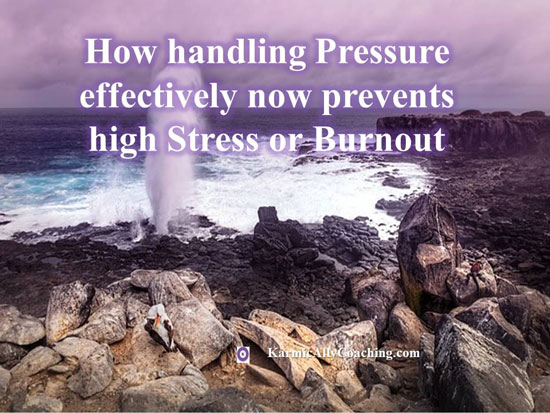
Working under pressure isn’t really a bad thing. Many of us perform better when we have to work towards a deadline.
Once the deadline is met, we return to a normal state and get a chance to rest. The real issue is when the pressure doesn’t stop or becomes excessive.
The idea that increasing pressure stimulates people to perform better and better, until an optimum point is reached, dates back to 1908.
Psychologists Robert Yerkes and John Dodson found that, when pressure exceeds this optimum point, it has the opposite effect and performance starts to suffer.
Reference: Yerkes, R. and Dodson, J. (1908). ‘The Relation of Strength of Stimulus to Rapidity of Habit-Formation,’ Journal of Comparative Neurology and Psychology, Volume 18, Issue 5.
This conclusion still holds today.
Case Study: Too much pressure that led an entire department’s resignation
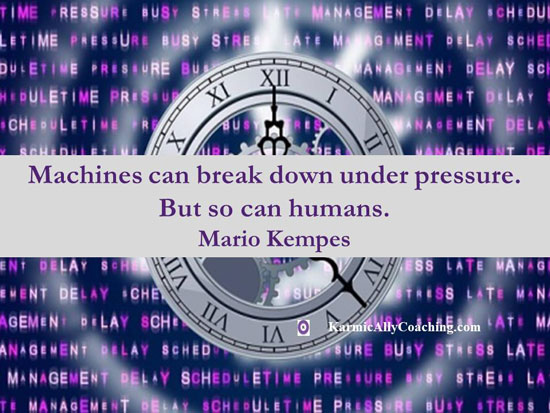
The best example I can offer comes from my own experience in an insurance company where the pressure got to the point where the entire department resigned.
When you’re working in the finance department of a stock exchange listed company, there is always pressure to have the financial statements ready for both the quarterly reporting and the annual reports.
Add to that a situation where the country of business follows one financial year and the parent company follows another. So, there are 2 sets of reporting being done with just 1 month break in between to recover.
That is tough but can be managed.
The scenario changed when a new accounting package was introduced along with an insurance package that caused the systems to collapse.
It was meant to help the insurance and finance departments work better. Instead, there were times when an input by the underwriting or claims department would crash the system and all data was lost.
The worst part was the entire finance department input got lost too. Time was wasted re-entering data and we were under constant pressure.
Doing backups twice a day didn’t help. Nobody wanted to sit late into the evening re-doing their work.
That’s when the junior staff started to leave and new joinees wouldn’t stay for more than a month, even though we were paying high salaries at that level.
The negative impact of pressure started to show up as mild dissatisfaction and then deterioration in the quality of the team’s work.
In the later stages, it showed up as stress, anxiety and incidents of meltdowns.
The management back in the parent company country stood up and took notice when all the Finance Directors across the region resigned. None of us had spoken to each other about it but we had the same situation.
All of us had developed health issues and were exhausted with system crashes. The feeling of not having any control on the situation led to high levels of stress and related issues.
We were all heading for burnout and decided life was more precious than a six-figure salary.
The company lost some great talent and ultimately had to hire teams at extra cost to fix things.
What’s Pressure and What You Can Do About it
Everyone knows what it feels like to be stressed out, but that doesn’t mean it’s easy to nail down what it means. We say things like, oh wow, this is stressful! Or, oh gosh, I feel stressed out.
It could be a situation or event that’s putting us under pressure (like when there is a lot to do or when you don’t have much control in a situation).
It might be the emotions you experience as a result of pressure that make you feel unable to cope (it’s so overwhelming it feels as though you’re walking through a thick fog).
Stress and pressure are often mistaken as being the same but this is not true.
As I mentioned earlier, pressure can be a positive and motivating factor that is often essential to get a task or job done quickly and helps you to perform better while achieving your goals.
Pressure is just a normal part of human life. On a good day, it can energize you, push you to act, and seek results.
However, if the pressure continues and becomes excessive, stress or our fight or flight response gets activated.
Overwhelming stress can cause serious issues. It isn’t a mental illness, you can’t receive it as a psychiatric diagnosis, however, that doesn’t mean it isn’t closely related to your mental health.
Stress can result in mental health issues (or make existing issues worse). For example, if you struggle with stress and you can’t cope or manage it, then you can develop anxiety and/or depression.
It’s a vicious cycle with both pressure and stress working together to overwhelm you.
Lookout for Signs of Pressure
Some of these signs will be noticeable by you and some might be brought to your attention by the observations of others. You might even be showing symptoms that need to be remedied.
- Wound up, irritable, impatient, aggressive
- Anxious, afraid, nervous
- Racing thoughts
- Unable to enjoy activities that normally fill you with joy
- A general disinterest in life
- An overwhelming sense of dread
- Loneliness or feeling neglected
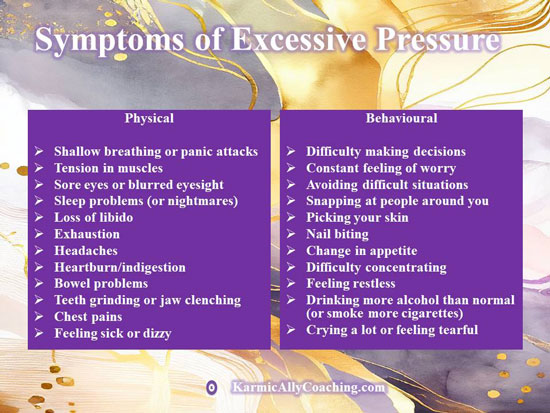
What you can do to cope With Pressure
If any of the symptoms look familiar, then there are ways for you to cope with pressure and reduce your stress.
- Identify your triggers for stress and either remove them altogether or learn how best to manage them. Look for issues that continue to crop up, one-off moments, or on-going stress.
- Organize your time more effectively to manage your tasks and pressure more efficiently. Identify when you have the most energy and take care of the most difficult tasks in that block of time, keep a list to ensure you stay on track, break things down into smaller tasks, and ask if you need help.
- Try to address the cause of your pressure, whether it’s mental health, financial, relationships, addiction, abuse, discrimination, general stress, or otherwise.
- If you can’t change it, then you must accept it and move on.
5 Key Reasons You want to stay Calm under Pressure
Whether you call it Pressure, Stress or even the Hot seat, we’ve all been there.
Many times in life depending on our occupation or circumstances we are met with the challenge of staying cool under pressure. The last thing we want to be is an anxious mess when it matters most to demonstrate composure, gravitas and leadership qualities.
We all want to be calm and collected when it counts. No one wants to crumble under pressure. It’s not as hard as you might think to learn to be calm under pressure. The benefits of developing the ability to keep calm are many. The main thing is that the calmer that you are the easier it is to make sound decisions and act effectively.
Some of the benefits of staying calm under pressure are:
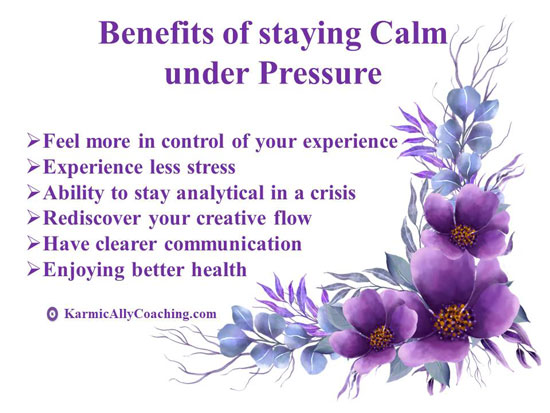
Now that we understand the benefits, here are the 5 reasons you want to stay calm under pressure.
You will feel more in control of the moment
Keeping calm under pressure reduces your body’s adrenalin fight or flight style response. Feeling in control contributes to feeling calm. Being able to handle yourself reduces anxiety, gives you more self-confidence, and gives you a sense of being able to control a pressure-filled situation.
As you get accustomed to thriving in pressure filed situations, your stress response becomes less pronounced. This basically means although you are still aware of a pressure filled situation, your ability to handle it is greater.
You will be able to make better decisions
Staying calm makes it easier to make good decisions. Tunnel vision is often a consequence of panic and fear. Calmness helps you see the big picture. Try taking a deep breath and focusing on the task at hand. The quality of the choices that you make will improve by keeping calm.
Mental Clarity
Mental clarity can be paired with decision making. Being able to think clearly, objectively, and analytically are key to handling yourself in a situation where calmness is critical. Consider this an advantage you have over the situation. Strive to stay calm and keep your head in the game in stressful situations.
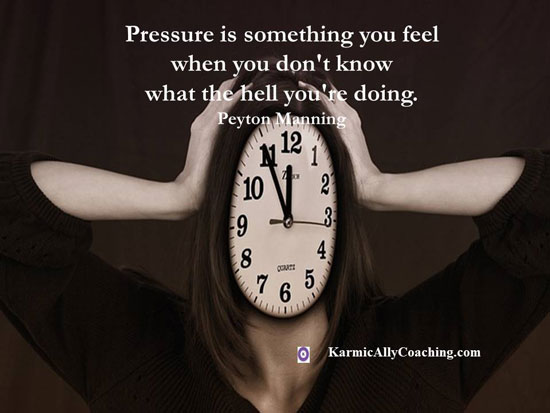
Creativity
When you are calm you are able to come up with creative solutions for problems more effectively. When you are anxious, or uptight creativity does not come as easily. Strive to channel creativity through calm collected thinking.
Objectivity while problem-solving
Similar to creativity it is easier to objectively solve problems if you are not stressed out or anxious from pressure. Seeing the big picture is a part of problem-solving that definitely works best when calm.
Learning how to problem solve in the heat of battle is a skill that will set you apart. This is a great tool for your career, academia, or personal life.
These are just some of the reasons to develop skills that allow you to stay calm under pressure. Learning to use these skills can keep you sane, help you level up in life, and benefit you all other areas of life.
The more you practice staying calm in stressful situations the better you will be able to handle high-pressure situations.
Don’t strive for perfection or set unrealistic expectations. If you are not naturally calm under pressure know that it will take practice. Once you start to focus on being calm under pressure and building these skills it gets easier. Practice brings calmness.
In part 2 of this series on Pressure, we’ll look at 6 ways to stay calm under pressure and explore effective methods to deal with pressures in life.



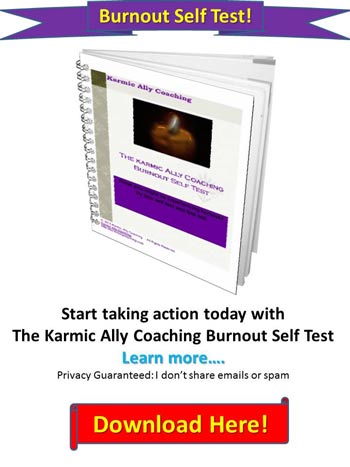

 I adhere to the Certified Coaches Alliance Code of Ethics and Standards. A copy is available on request.
I adhere to the Certified Coaches Alliance Code of Ethics and Standards. A copy is available on request.
 Let's Talk through the Connect Form:
Let's Talk through the Connect Form: